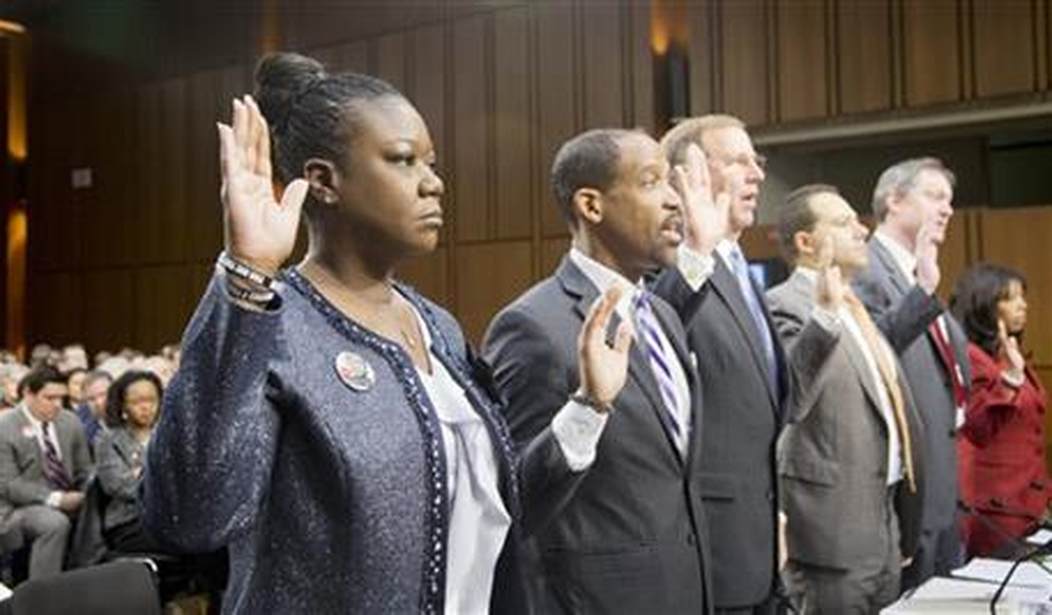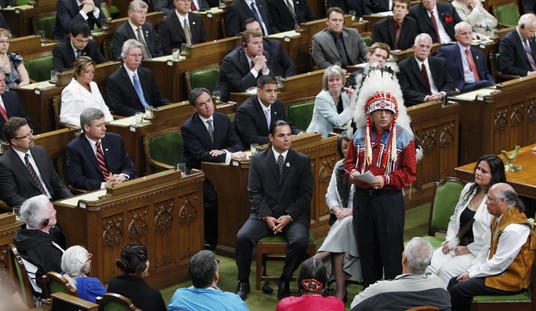WASHINGTON – Sybrina Fulton, the mother of Trayvon Martin, testified before a Senate Judiciary Subcommittee on Tuesday about “stand your ground” self-defense laws, reviving the contentious debate in Washington over such legislation.
Fulton said she was there so that lawmakers could put a face on the tragedy that resulted in the loss of her son, who had just celebrated his 17th birthday three weeks before he was killed while walking home in Sanford, Fla.
“He was going to get a drink and candy. He was not looking for any type of trouble,” she said. “He was not the criminal that some people have tried to make him out to be. He was not the criminal that the person that shot and killed him thought that he was.”
She told Congress stand your ground laws do not work because they can be confusing and applied inconsistently.
“I just wanted to come here to let you know how important it is that we amend this stand your ground because it certainly did not work in my case,” Fulton said. “The person that shot and killed my son is walking the streets today. This law does not work. We need to seriously take a look at this law.”
George Zimmerman, who was legally carrying a firearm, told police that he was confronted and punched by Martin, and shot him in self-defense, though he did not invoke the state’s stand your ground law in his defense. Martin’s parents and others argue that Zimmerman racially profiled Martin. Zimmerman was acquitted of second-degree murder in July.
Stand your ground laws let individuals use lethal force instead of retreating if they feel threatened with death or serious injury in public by another person. Florida was the first state to enact such laws in 2005. Subcommittee chairman Dick Durbin (D-Ill.) said 25 other states have introduced the law in some form since 2005.
The partisan divide on the issue was clear on Tuesday, with Democrats saying the laws have led to more gun violence, often targeting minorities, and Republicans arguing for the need of self-defense laws.
Republicans, led by the Texas duo of Sen. Ted Cruz and Rep. Louie Gohmert, said the matter should be left to the state legislatures that passed the laws.
Cruz said these laws are the responsibility of state governments. Gohmert, who testified at the hearing, said that most states “are doing quite well” with legislating in the area of criminal law without interference from the federal government.
“Let’s leave state criminal law to the consideration of state legislatures,” he said.
Gohmert noted that murder rates are higher in Chicago and Washington, D.C., where gun laws are more restrictive, than they are in states that have stand your ground laws.
“[The] idea of being able to stand one’s ground without first retreating has been combined as part of the law of self-defense in at least 22 states. It might also be noted that these 22 are not necessarily states in which runaway murder rates abound,” he said.
Harvard Law professor Ronald S. Sullivan said the law “tells Floridians that they can incorrectly profile young black children, kill them, and be protected by stand your ground laws.” He said these laws unfairly target minorities and encourage citizens to act as vigilantes.
John Lott, president of the Crime Prevention Research Center, said the majority of people that invoke stand your ground laws in court have been of the same race as the victim.
He rebutted Sullivan’s claim by indicating that blacks benefit most from these laws.
“In Florida, blacks make up about 16 percent of the population, but they account for 31 percent of the state’s defendants invoking stand your ground laws,” he said.
He contended that black defendants who invoke the law as a defense are acquitted almost eight percentage points more often than whites.
“Stand your ground is tremendously misunderstood,” said Cato scholar Ilya Shapiro.
He said these laws protect law-abiding citizens, such as victims of domestic violence, and do not increase the likelihood of vigilantes.
Lucia McBath, mother of 17-year-old Jordan Davis, shot to death in Jacksonville, Fla., late last year, also testified.
“My son Jordan was shot and killed last November while sitting in the back seat of a friend’s car listening to loud music,” she said.
Davis was killed when Michael David Dunn allegedly fired nine rounds on a car carrying four teenagers, after complaining about their loud music and claiming he saw a gun. Authorities never found a gun inside the vehicle.
McBath said Dunn “was empowered by the stand your ground statute,” adding, “I am here to tell you there was no ground to stand. There was no threat. No one was trying to invade his home, his vehicle, nor threatened him or his family.”
While expressing sympathy for Martin’s mother, Cruz said the events leading up to Martin’s death remain unclear.
“None of us in this hearing room were there that night. None of us knows precisely what happened. We know that the end of that confrontation, the teenager was dead,” Cruz said. “What exactly occurred that night? No one in this room will likely know. But we know some things.”
“We know that our system of justice has a process for ascertaining what happens when there’s a violent confrontation, particularly one that leads to the loss of life – and that process is a jury trial. A jury of Mr. Zimmerman’s peers rendered a conclusion. We don’t know if the jury was right or wrong, but we know that when you have one-on-one confrontation, it can be particularly difficult to determine what the facts are,” he continued.
He also accused lawmakers of exploiting Martin’s death to advance their own political agendas that “have nothing to do with that young man’s life.”
“We know that the subject of this hearing was not a defense that Mr. Zimmerman raised,” Cruz added.
Zimmerman did not use the stand your ground law in his defense, but it was cited by police who initially declined to charge him with Martin’s killing.
The Texas senator also rejected the notion, put forward earlier in the hearing by Durbin, that “no one could reasonably believe the stand your ground laws protect those in the African-American communities who are victims of violent crimes.”
He said he found that idea particularly remarkable since “a great many African-Americans find themselves victims of violent crimes and have asserted this defense to defend themselves, defend their families, and defend their children.”
“The notion that stand your ground laws are some form of veiled racism may be a convenient political attack,” he said, “but it is not borne out by the facts remotely.”
Durbin shot back after Cruz’s remarks, pointing to the testimony from Hilary Shelton, director of the NAACP’s Washington Bureau.
“Few issues have caused as much angst and raised as many deeply held concerns among our members and the communities we serve as that of stand your ground laws,” Durbin said, reading Shelton’s testimony. “These laws and their applications have sadly resulted in no less than the murder of people who were doing no less than walking down the street.”
“This continued reference to inflaming racial tension, my friends, we’ve heard this before, over and over again,” he continued. “We have problems with the issues of race in America that we have to face squarely, and when people are being discriminated against, whoever and wherever in America, the Subcommittee on the Constitution, Civil Rights, and Human Rights is not going to back away.”









Join the conversation as a VIP Member